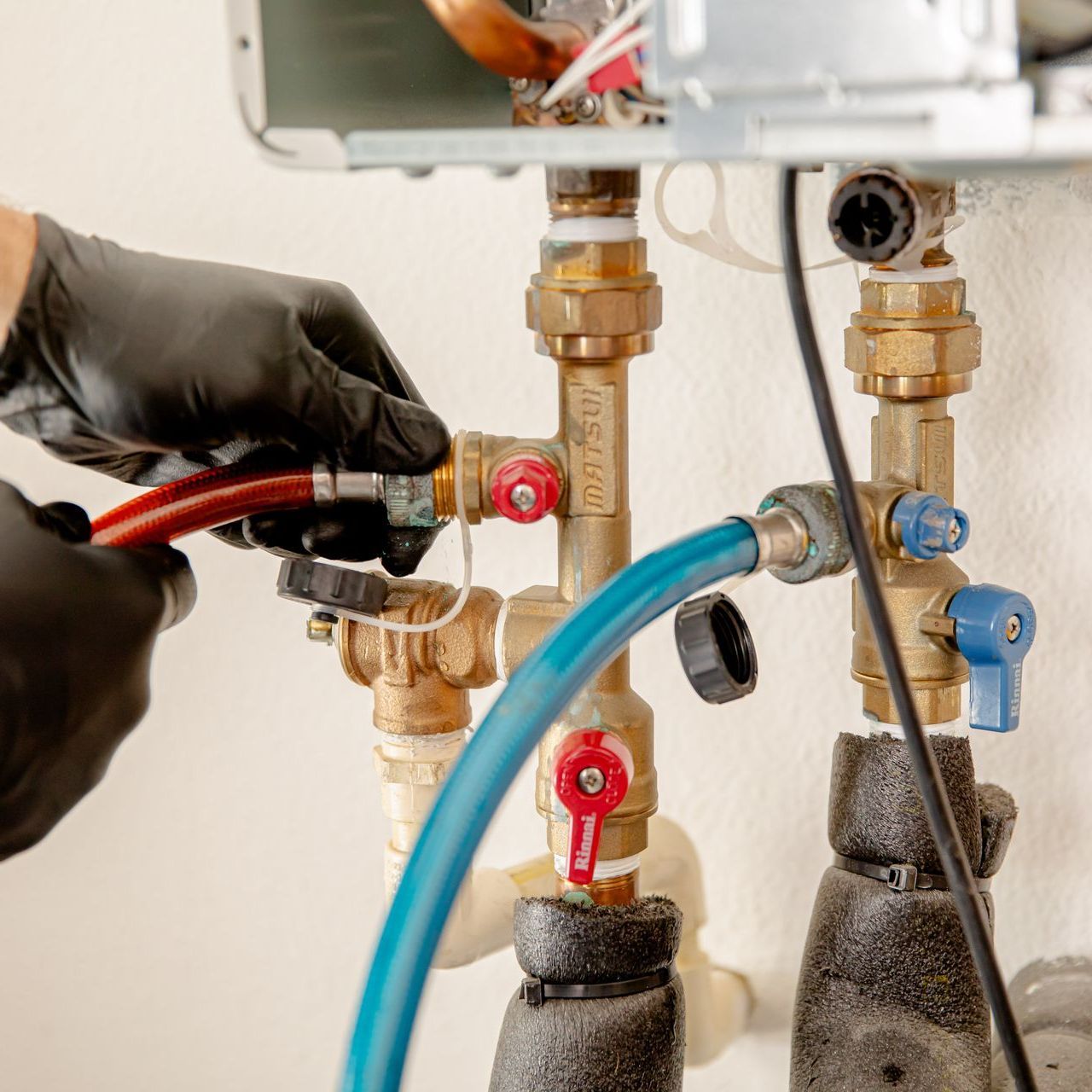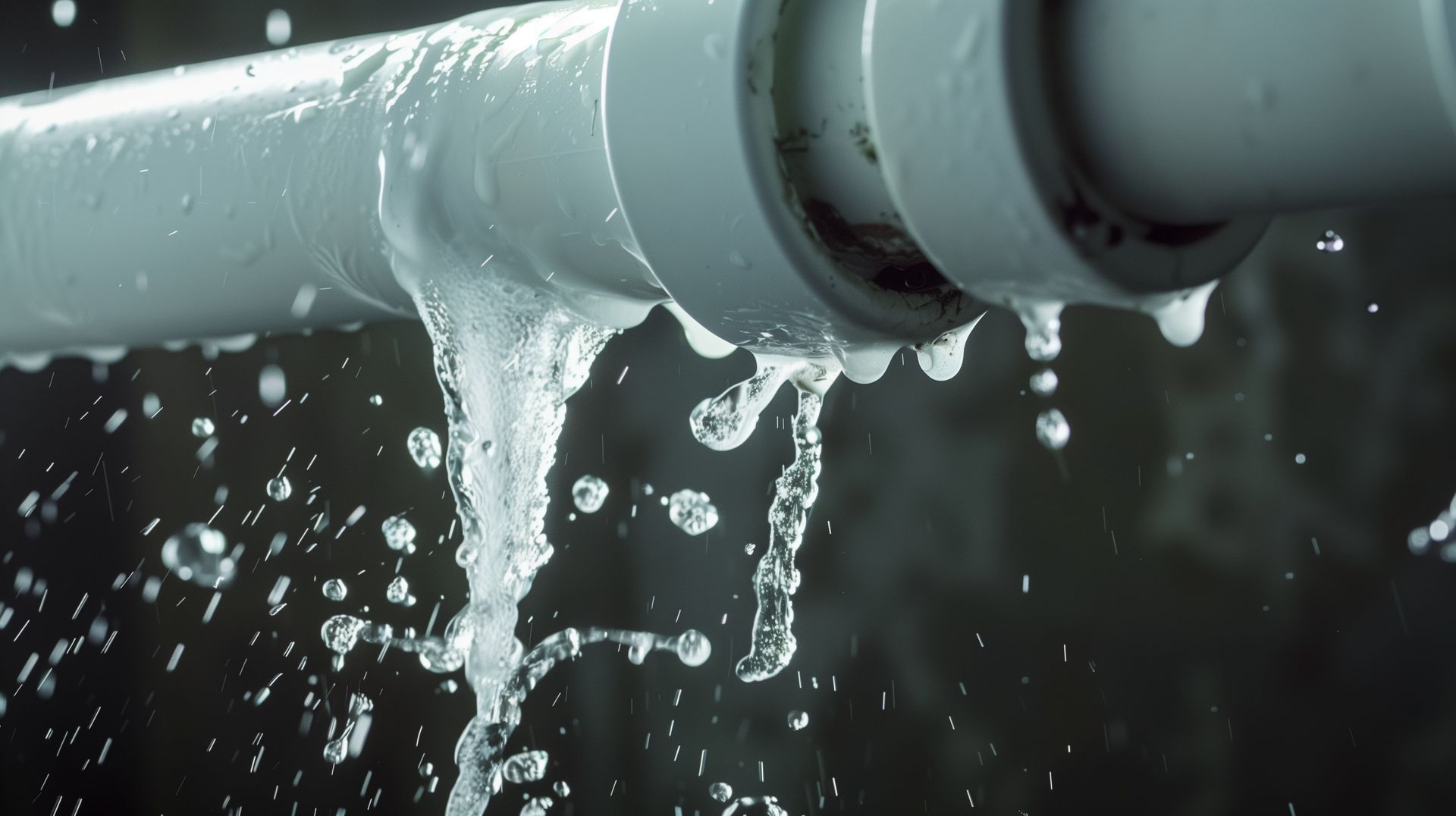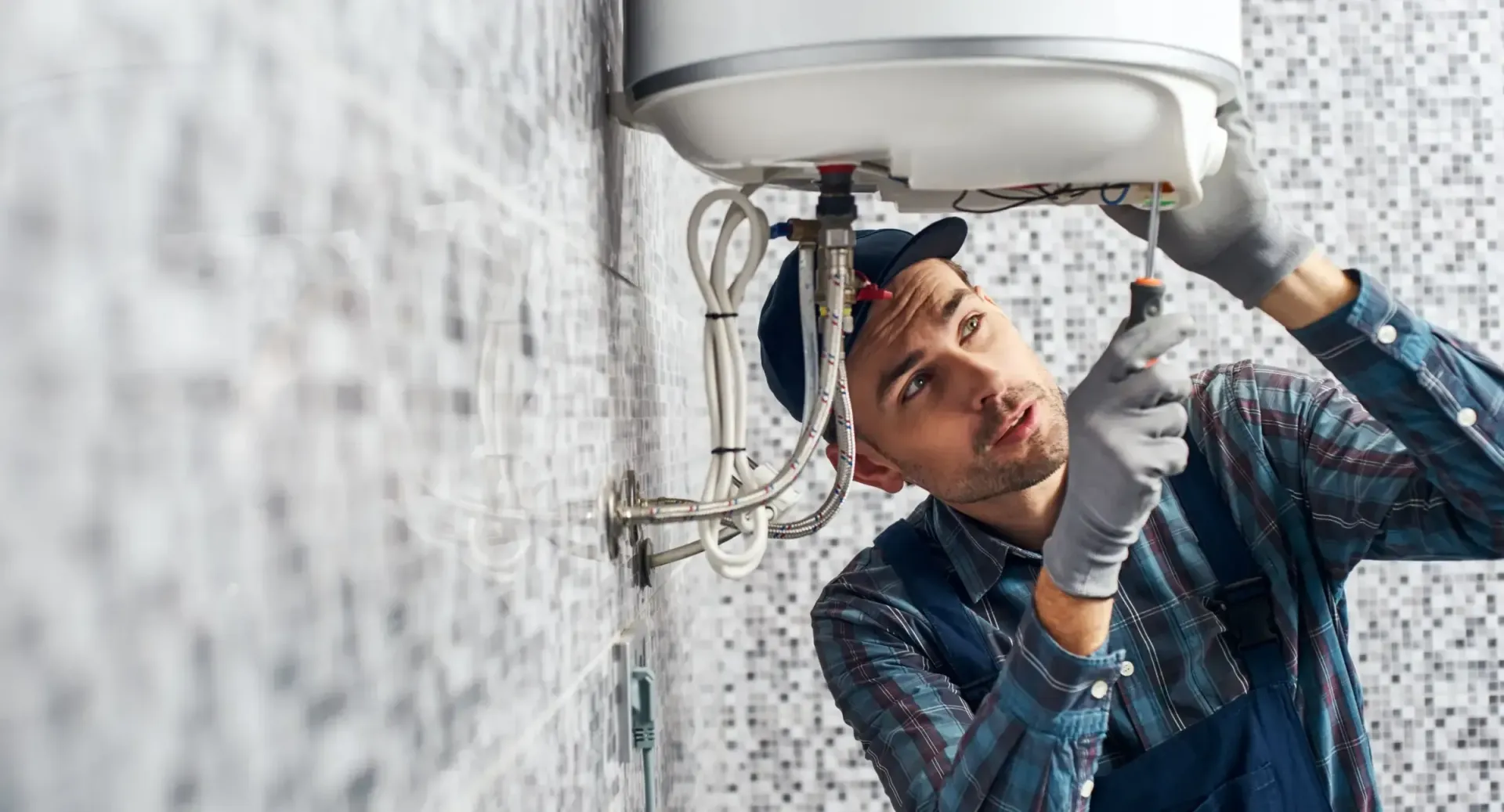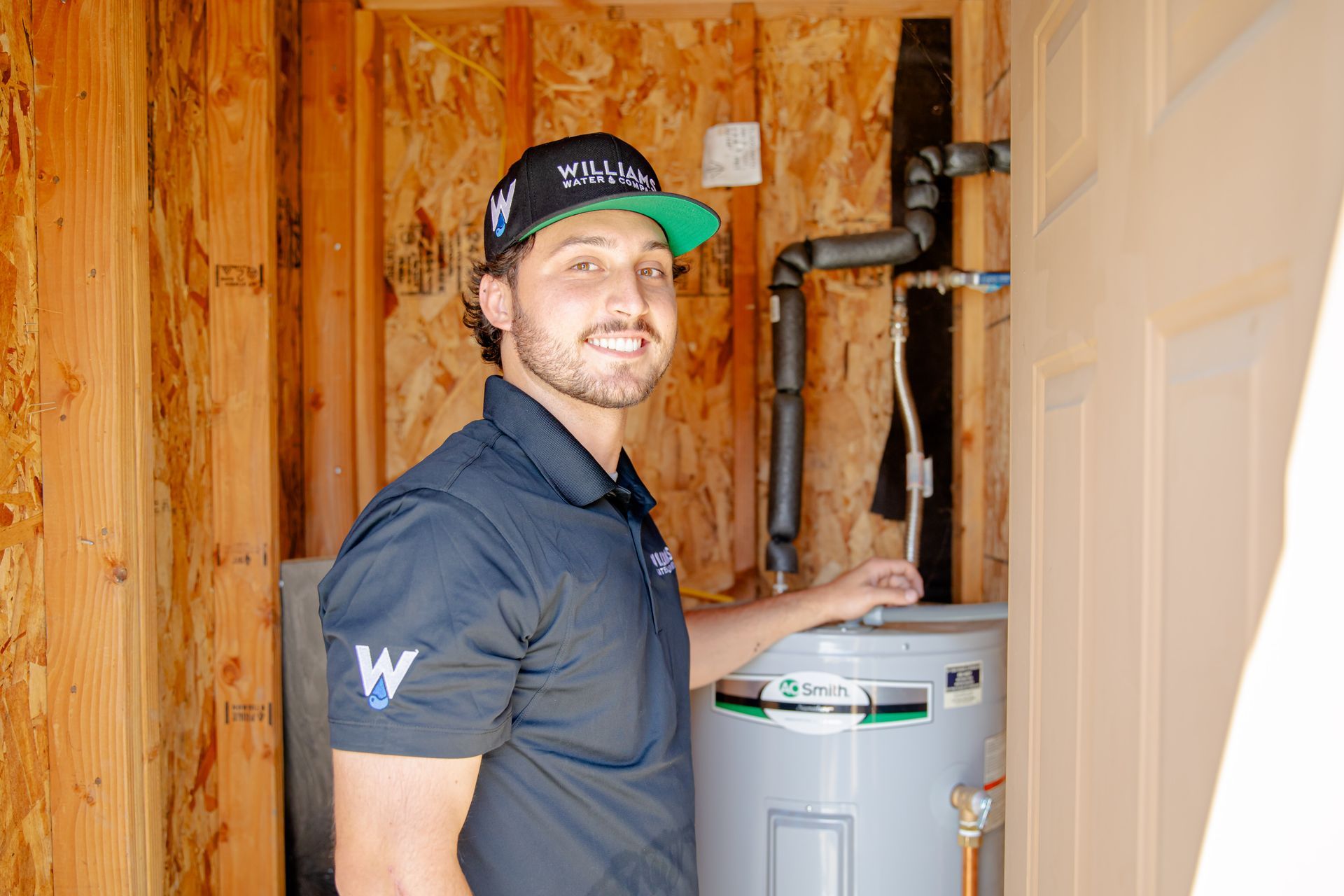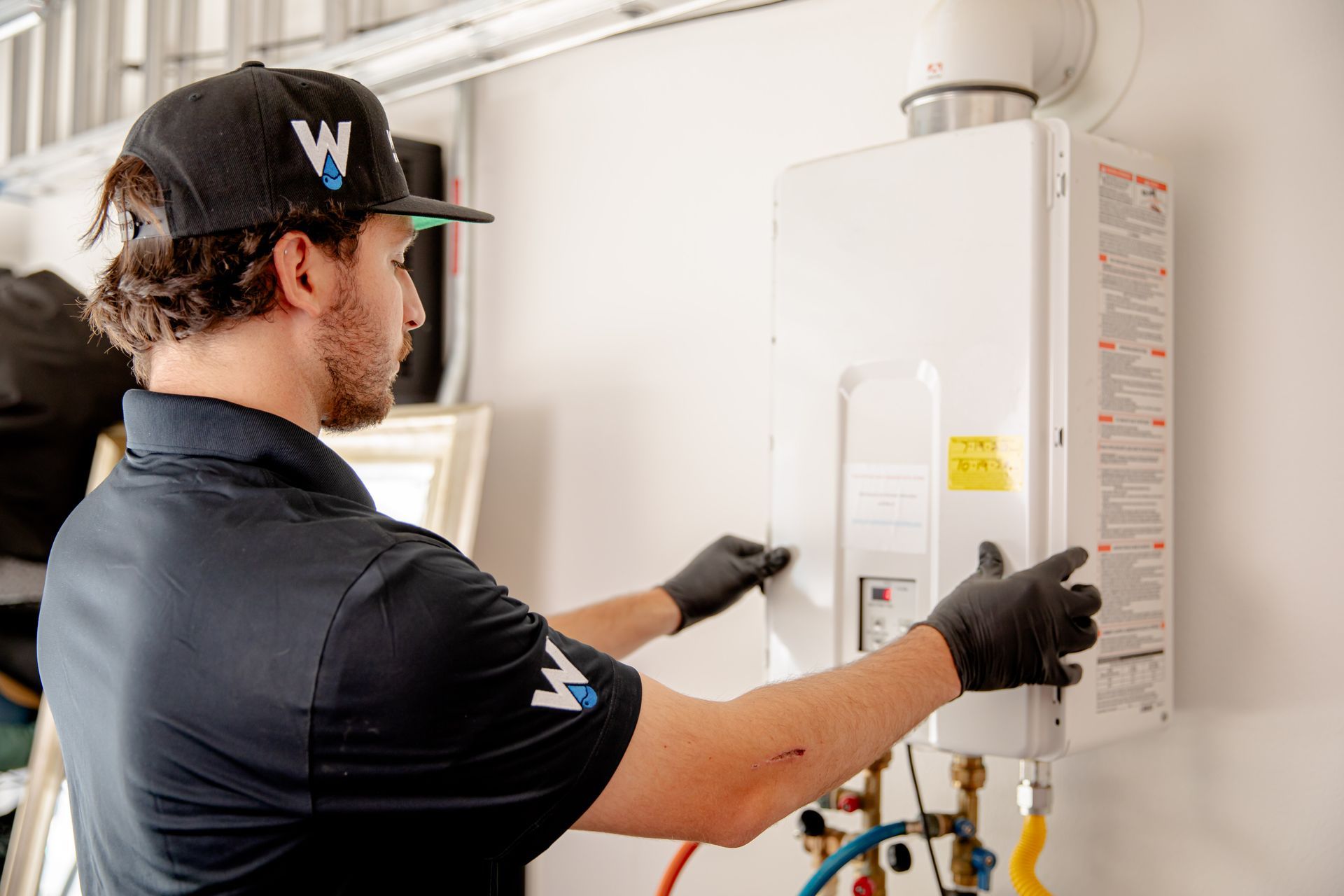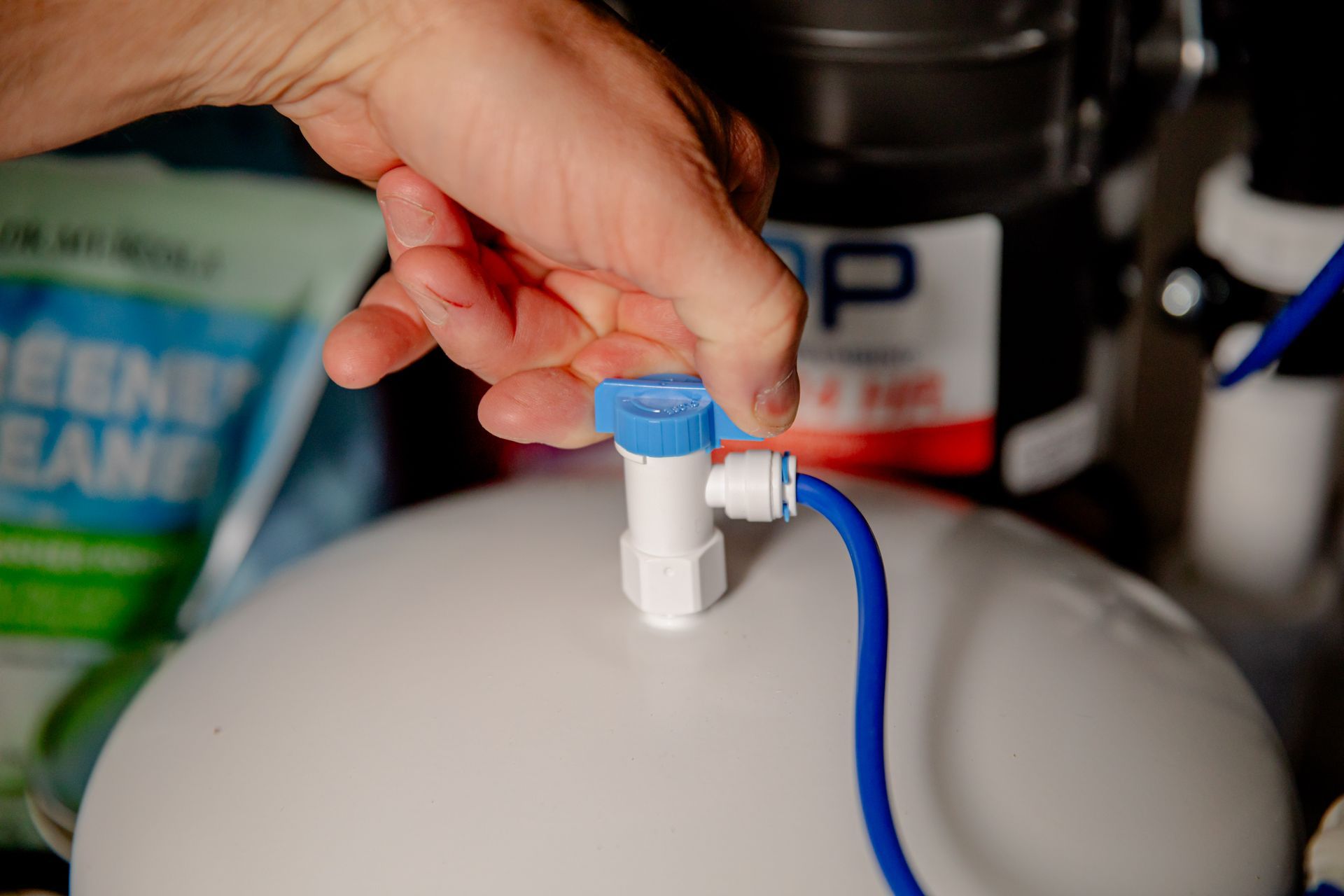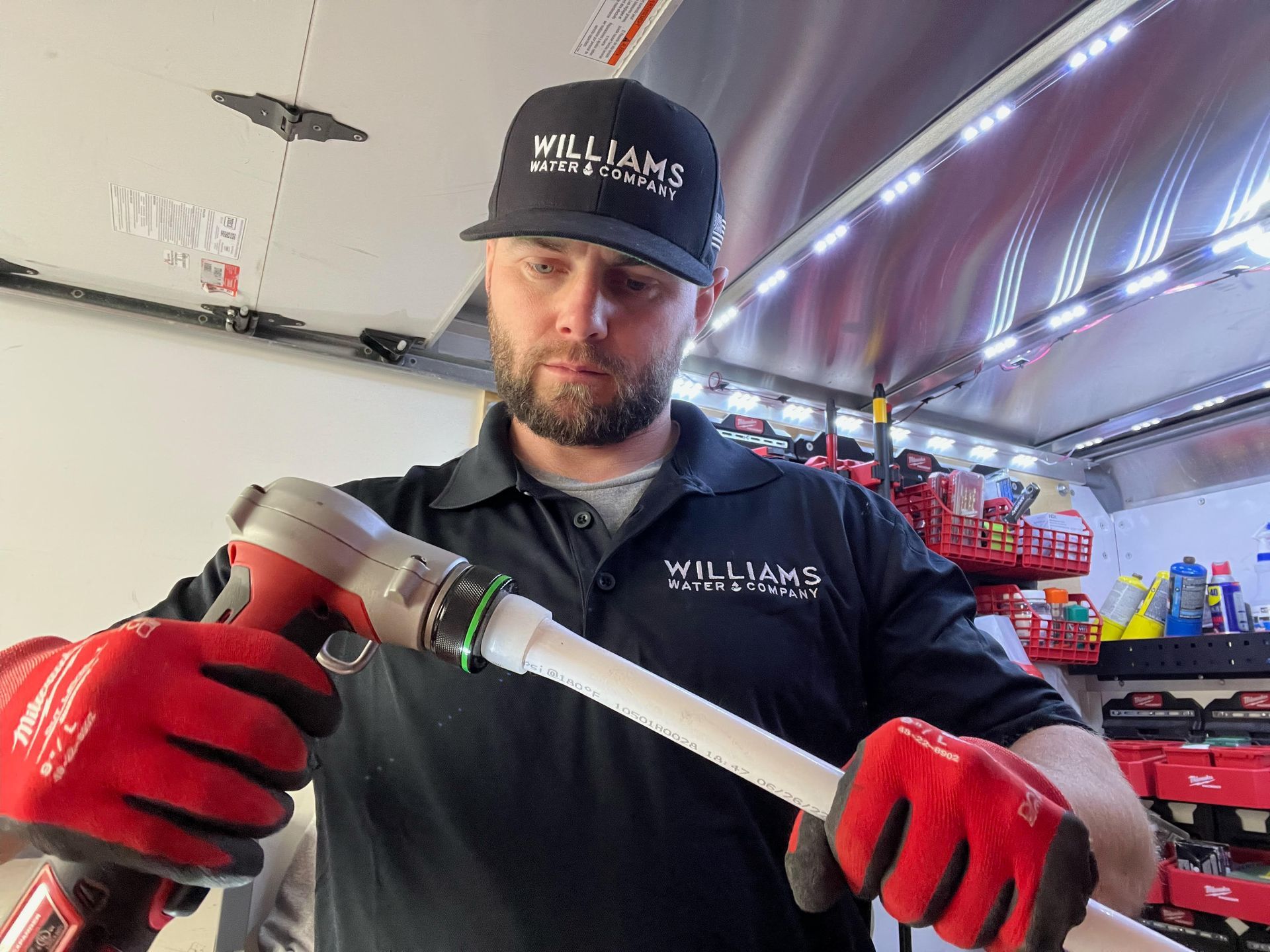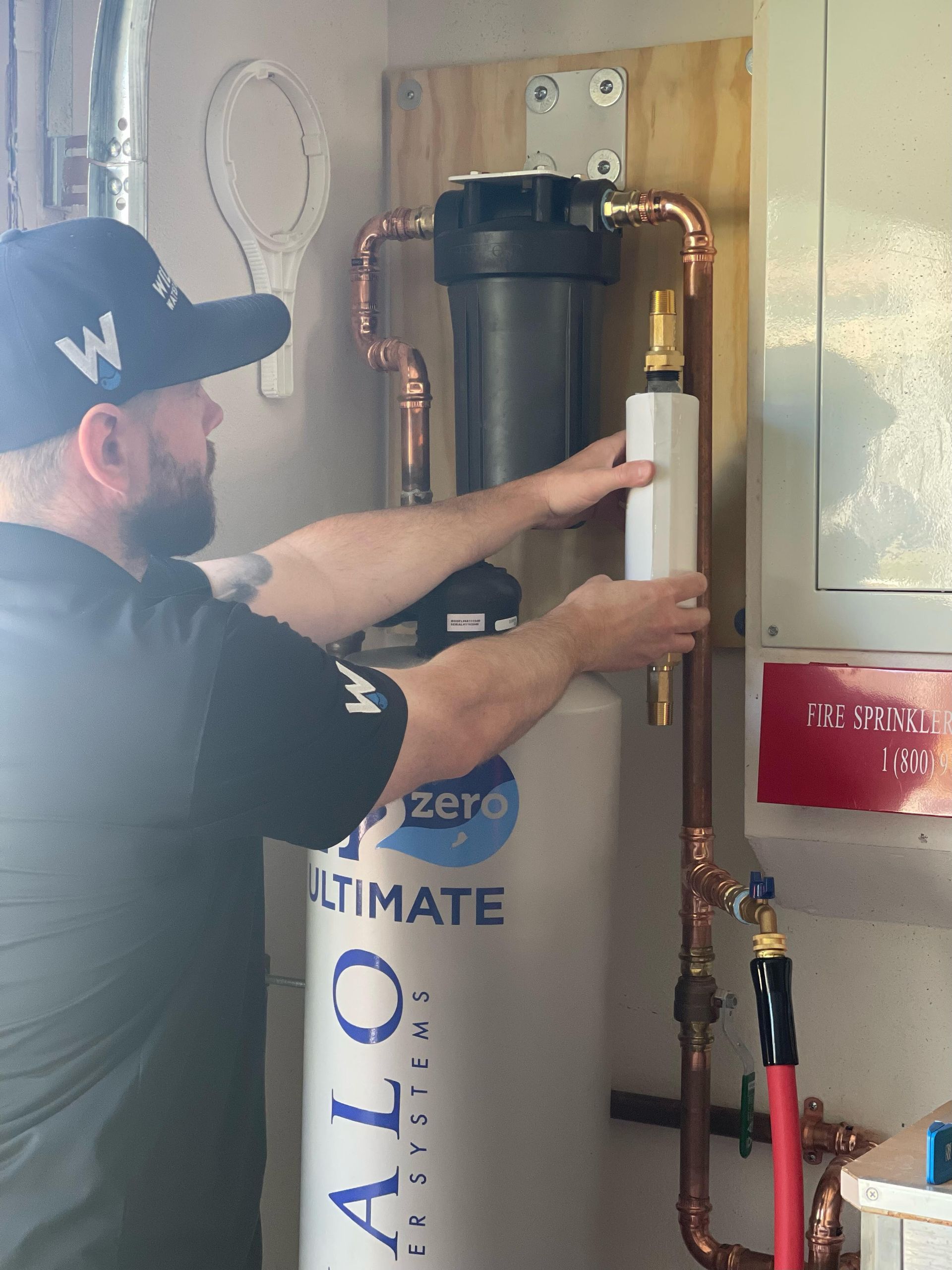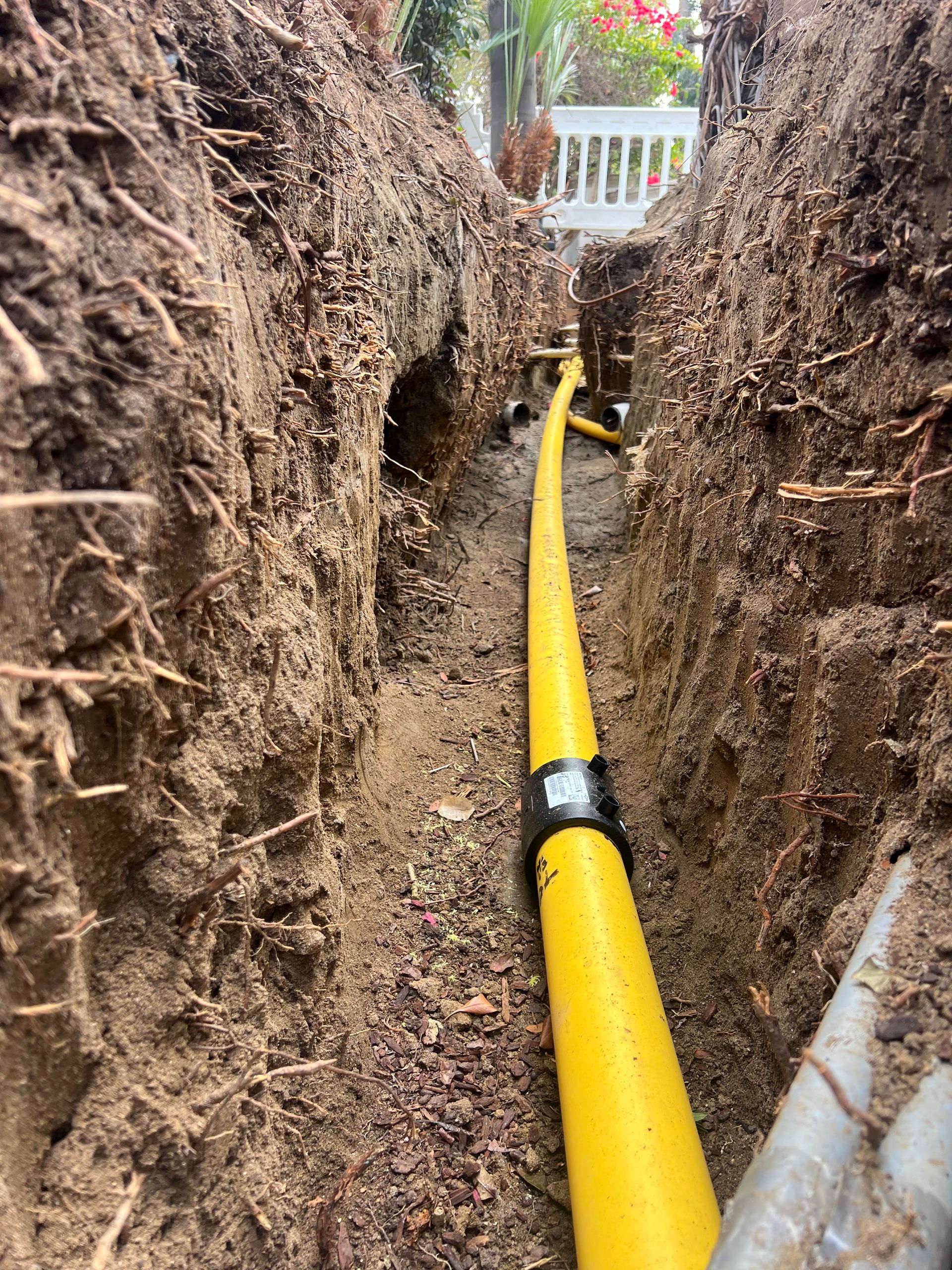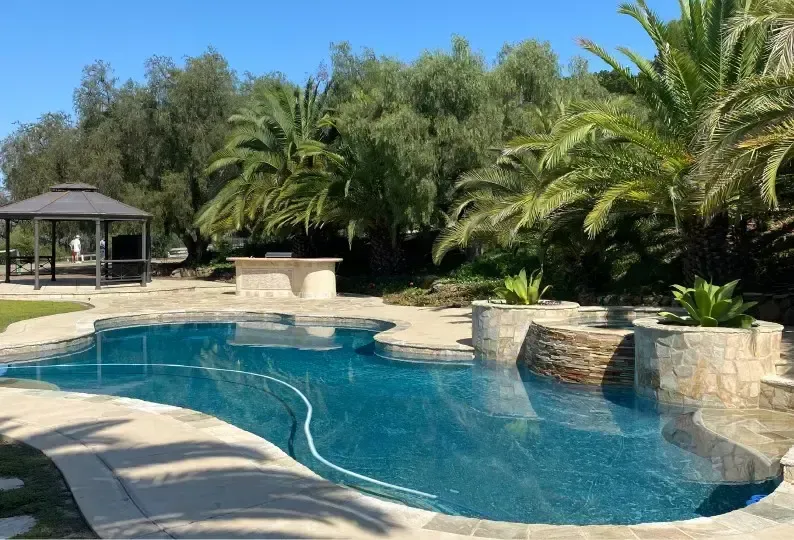October 17, 2024
San Diego is known for its beautiful weather and coastal charm, but like any city, homeowners face unique plumbing challenges that can disrupt their daily lives. Whether it's hard water buildup, clogged drains, or water heater malfunctions, these issues can be both frustrating and costly if left unaddressed. In this article, we’ll explore some of the most common residential plumbing problems in San Diego and offer practical tips on preventing them. We’ll also highlight when it’s time to call a professional to avoid bigger issues down the road. 1. Hard Water Problems The Issue: San Diego is known for having hard water, which means the water has high levels of dissolved minerals, particularly calcium and magnesium. Over time, this hard water can lead to scale buildup in pipes, faucets, and water-using appliances, reducing efficiency and causing long-term damage. Prevention Tips: Install a Water Softener: A water softening system can reduce the mineral content in your water, preventing scale buildup in pipes, fixtures, and appliances. Regularly Clean Faucets and Showerheads: Mineral deposits can accumulate on faucets and showerheads, reducing water flow. Soaking them in vinegar or a specialized descaling solution can remove these deposits and restore water pressure. Use Vinegar for Descaling Appliances: Regularly running vinegar through appliances like coffee makers, dishwashers, and washing machines can prevent scale buildup. When to Call a Professional: If you notice persistent low water pressure, white crusty deposits around faucets, or your water heater isn’t performing efficiently, it’s time to consult a plumber. They can inspect your plumbing system for mineral buildup and recommend the best water softening solutions for your home. 2. Clogged Drains The Issue: Clogged drains are a common issue in San Diego homes, often caused by a buildup of hair, soap scum, grease, or food particles. While a minor clog can cause slow drainage, a serious clog can lead to backed-up sinks or showers, creating an unhygienic situation. Prevention Tips: Use Drain Screens: Installing drain screens in sinks, showers, and bathtubs can prevent hair, food debris, and other materials from entering your pipes. Avoid Pouring Grease Down the Drain: Grease solidifies as it cools, leading to stubborn clogs in kitchen pipes. Instead, dispose of grease in a container and throw it in the trash. Flush Drains Regularly: To clear your drains of buildup, pour a mixture of hot water, baking soda, and vinegar down them monthly. When to Call a Professional: If you’ve tried plunging or using a drain snake but your sinks or showers are still slow to drain, it’s time to call a plumber. Professional tools like hydro-jetting can safely remove even the most stubborn blockages without damaging your pipes. 3. Water Heater Maintenance Issues The Issue: Water heaters, especially older models, can suffer from mineral buildup (due to hard water), wear and tear, or faulty components, leading to poor performance or failure. A poorly maintained water heater may result in inconsistent temperatures or a complete lack of hot water. Prevention Tips: Flush Your Water Heater Regularly: Flush your water heater once a year to remove sediment buildup that can affect its efficiency. This can be done as a DIY project, but if you’re uncomfortable doing it, a professional can help. Install a Water Softener: As mentioned earlier, a water softener can help prevent mineral buildup in your water heater, extending its lifespan. Check the Temperature Setting: Ensure your water heater is set to the manufacturer’s recommended temperature to avoid overheating or excess wear on the system. When to Call a Professional: If you experience inconsistent water temperatures, rusty water, or loud banging noises from your water heater, it’s time to call in a plumber. These could be signs of more serious issues like a faulty thermostat, a failing heating element, or excessive sediment buildup. 4. Leaky Faucets and Pipes The Issue: Leaky faucets or pipes are a common nuisance in many San Diego homes. While a small leak might seem minor, it can waste significant amounts of water over time, leading to water damage or mold growth if left unaddressed. Prevention Tips: Check for Leaks Regularly: Inspect faucets, under-sink plumbing, and exposed pipes regularly for signs of drips or leaks. Replace Worn Washers and Seals: A worn washer or seal is often the culprit behind a leaky faucet. Replacing these small parts can prevent leaks from developing into bigger problems. Monitor Your Water Bill: An unexplained increase in your water bill could indicate a hidden leak. If you notice a spike, it’s worth investigating for any plumbing issues. When to Call a Professional: If you’ve tried tightening fixtures or replacing washers but the leak persists, or if you notice water damage on walls, floors, or ceilings, it’s best to consult a professional plumber. A small leak can indicate larger plumbing problems, such as corroded pipes or faulty valves. 5. Sewer Line Issues The Issue: San Diego’s older neighborhoods are prone to sewer line problems. Tree roots can invade underground pipes, or the lines can crack and deteriorate over time, leading to sewage backups or slow drainage across multiple fixtures. Prevention Tips: Be Mindful of What You Flush: Only flush toilet paper and human waste. Avoid flushing items like wipes, paper towels, or hygiene products that can clog sewer lines. Watch for Warning Signs: Gurgling sounds in your drains, frequent backups, or foul odors from your plumbing can indicate a sewer line issue. Regular Sewer Inspections: For homes with large trees or older plumbing, scheduling regular sewer inspections can catch potential issues early. When to Call a Professional: If you suspect a problem with your sewer line, such as multiple drains clogging at once or recurring backups, it’s essential to contact a plumber who specializes in sewer repairs. They can use cameras to inspect the line and determine the best action, such as cleaning, repair, or replacement. Final Thoughts While some plumbing issues are unavoidable, many can be prevented with regular maintenance and attention. Whether installing a water softener to combat San Diego’s hard water, flushing your water heater, or simply being mindful of what goes down your drains, these steps can save you from costly repairs and water damage. When in doubt, don’t hesitate to call a professional plumber. A proactive approach will keep your plumbing system running smoothly and ensure your home remains comfortable and problem-free for years.
